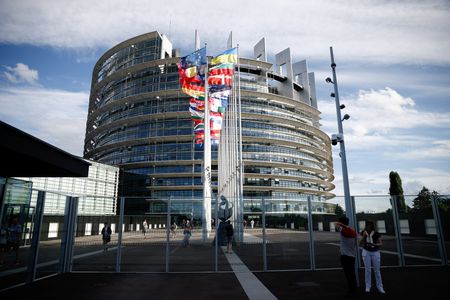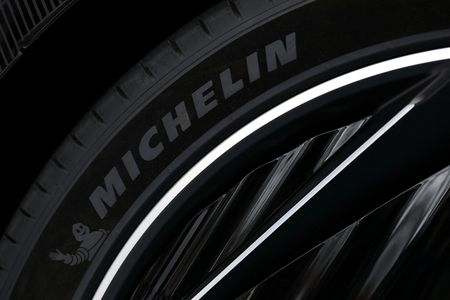By Kate Abnett and Inti Landauro
BRUSSELS (Reuters) -The European Parliament’s legal committee on Monday backed plans to further cut back the EU’s corporate sustainability law, which is facing pushback from companies that say complying with the rules would hinder the competitiveness of European industries.
The European Union’s corporate sustainability due diligence directive (CSDDD) was adopted last year and requires companies to fix human rights and environmental issues in their supply chains, or face fines of 5% of global turnover.
In a vote on Monday, lawmakers in the European Parliament’s legal committee approved proposals that would cut back the rules to only apply to companies with 5,000 or more employees and at least 1.5 billion euros ($1.74 billion) in turnover.
Currently, CSDDD covers companies with 1,000 or more employees and above 450 million euros in turnover. The committee also backed dropping a requirement for companies to carry out “transition plans” to align their operations with climate change goals.
“The EPP’s goal has always been to simplify rules and cut costs for businesses — and even go further than the initial Commission proposal. Our vote today will create more predictability for our businesses in an unpredictable world,” says Jorgen Warborn, the lawmaker who drafted the text approved on Monday.
The committee requested that the European Parliament now start negotiations on the final rules with EU countries. The full EU Parliament will decide next week whether to do this, or to amend the proposals further.
Some of the changes already appear likely to pass. EU countries have already said they support changing the law to only apply to companies with 5,000 or more employees.
The CSDDD has become one of the most politically contested parts of Europe’s green agenda, with countries like the United States and Qatar demanding changes – arguing the EU is overstepping by imposing requirements on foreign companies.
European companies including TotalEnergies have demanded that the EU scraps the law entirely, warning it could hurt the bloc’s ability to compete economically with foreign rivals.
But the walk-back on ESG rules has met resistance from some investors and campaigners, who say it weakens corporate accountability and hurts Europe’s ability to attract more investments towards meeting climate goals.
Some companies have also pushed back. In a survey of 2,500 leadership staff at European companies by think-tank E3G and YouGov, conducted in August, 63% of respondents said they supported requirements for large companies to carry out a plan to climate change transition plan, versus 11% who disagreed.
(Reporting by Kate Abnett, Inti Landauro; Editing by Benoit Van Overstraeten)











